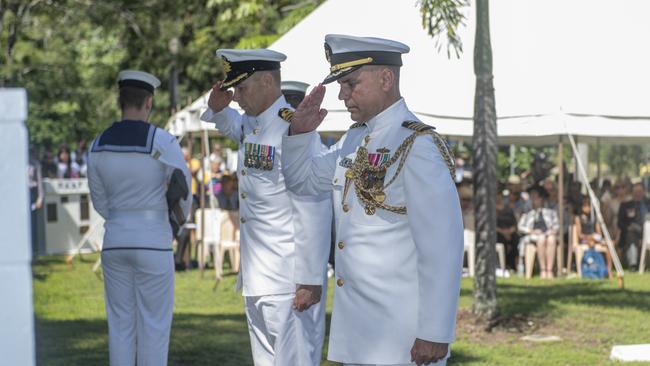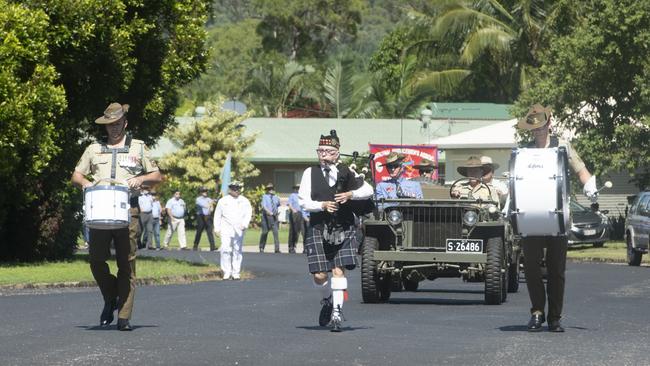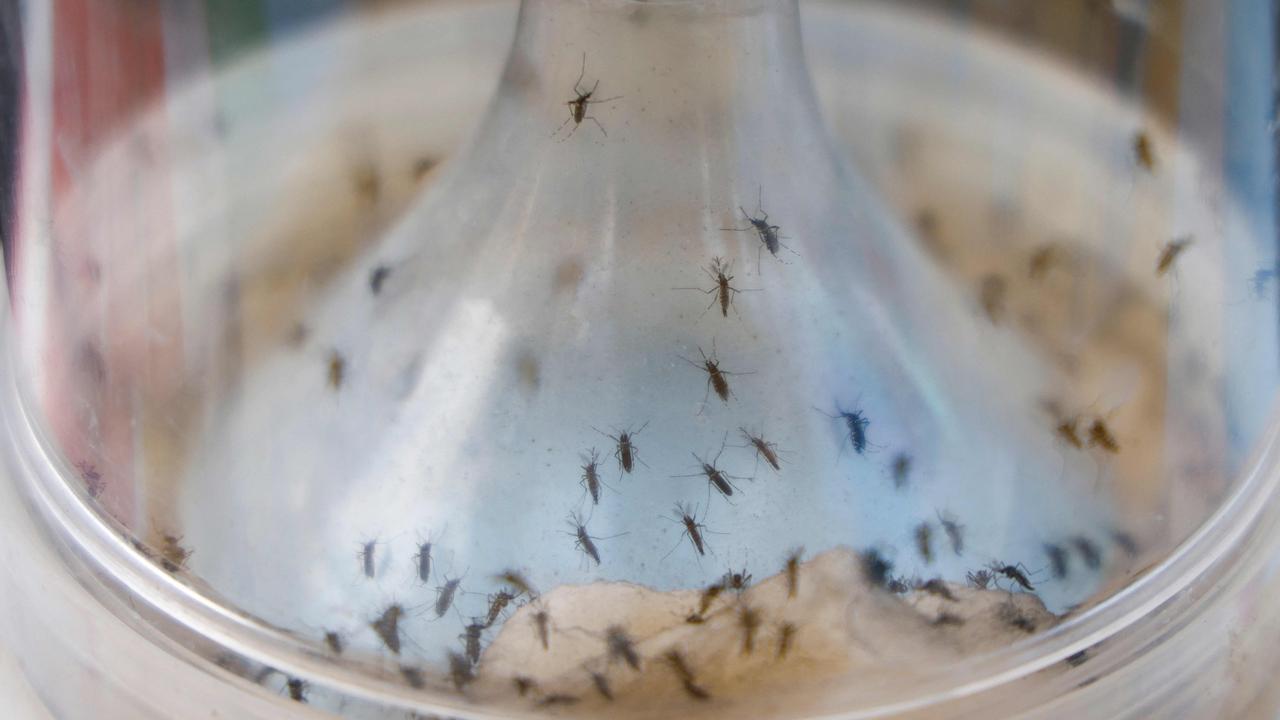Battle of the Coral Sea heroes honoured
Naval personnel and veterans’ groups from all over the Far North gathered in Cardwell yesterday to honour US Navy aviators and sailors who fought in the Battle of the Coral Sea in 1942.

Cairns
Don't miss out on the headlines from Cairns. Followed categories will be added to My News.
- Crocodile reportedly snatches dog from Cardwell Beach
- Would-be pollies face fiery candidate forum at Mission Beach
SEVENTY-SEVEN years after the “battle that saved Australia”, navy personnel and veterans’ groups from all over the Far North gathered in Cardwell yesterday to honour the naval aviators and sailors who fought in the Battle of the Coral Sea.
Veterans’ groups from the Cassowary Coast, Cairns and Townsville along with sailors from HMAS Cairns, graduates from a navy indigenous defence program, community groups and local police and emergency personnel marched to the Coral Sea Battle Memorial Park before a commemoration service and wreath laying ceremony.
Several hundred people attended the commemorations including LNP Senator for Queensland, Ian Macdonald, commanding officer of HMAS Cairns, Commander David Hannah, and Canberra-based US naval attache, Commander Tony De Frias who read out a message from US President Donald Trump.
Commander De Frias said remembering the Battle of the Coral Sea was very important for the US.
“It partially signals the importance of the US-Australian relationship but it’s also about how the tide of World War II changed and has resulted in the world as we know it today,” he said.
“The US takes great privilege in the history and the connection with Australia in achieving that and it’s overwhelmingly moving to be part of that each year.”

Between May 4 and 8, 1942, the battle – fought about 800km east of Cardwell – ended Japanese attempts to launch a seaborne invasion of Port Moresby.
A US carrier force, supported by Australian ships, moved into position in the waters southwest of the Solomon Islands and east of New Guinea.
The Australian ships along with some US vessels were sent to intercept the invasion force and did not take part in major fighting between US and Japanese air and naval forces.
The battle was fought entirely by aircraft attacking ships and the opposing fleets never fired at each other.
More than 550 Americans were killed or wounded and the US aircraft carrier USS Lexington was sunk.
The battle not only ensured Port Moresby was not invaded, it was the first time the Japanese advance had been halted in the Pacific.
Originally published as Battle of the Coral Sea heroes honoured


